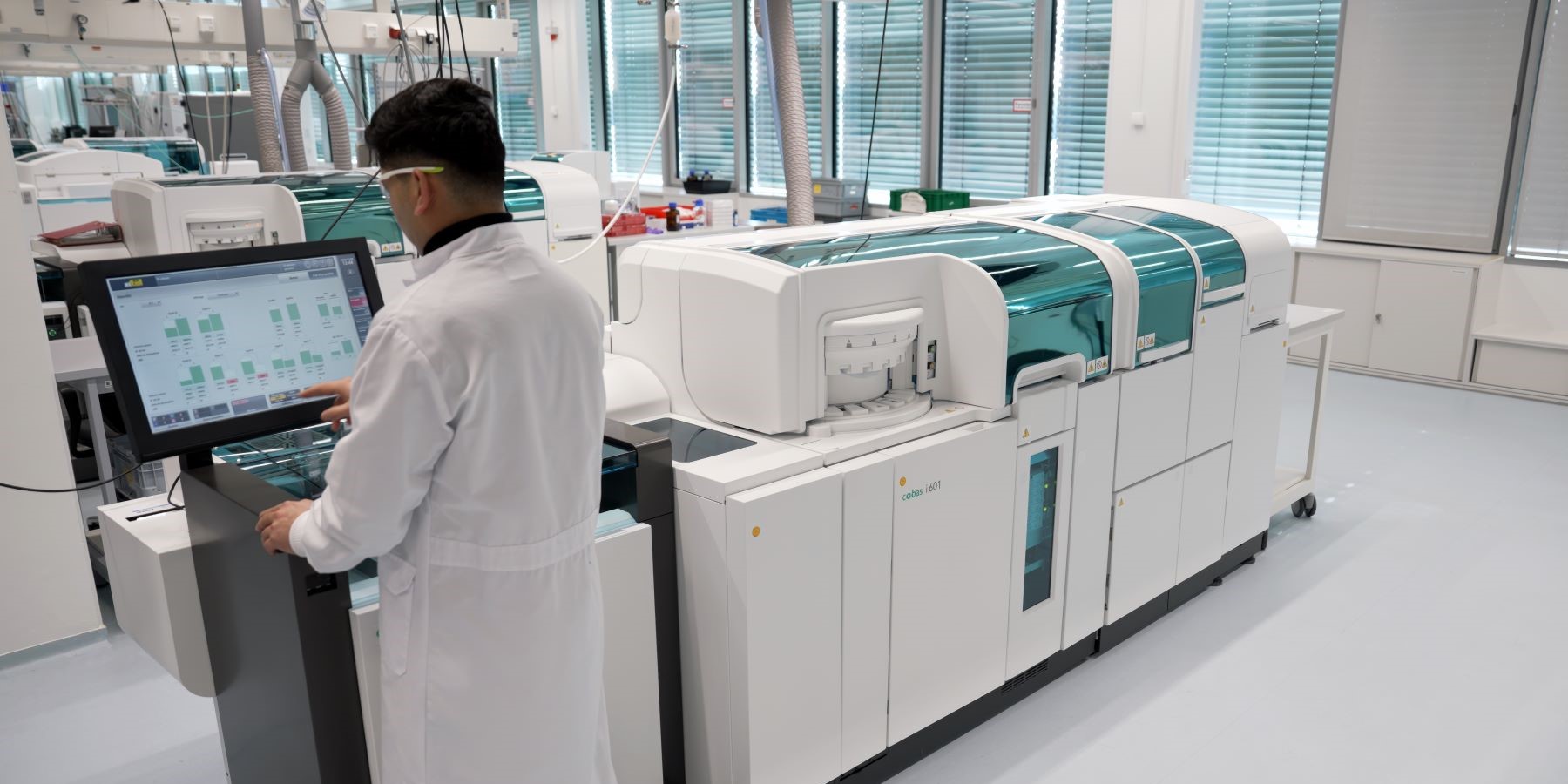Have you ever thought of adding mass spectrometry (MS) to your clinical laboratory? Or are you already using the technology, but wondered about the possibility of adding MS to routine testing? Once the domain of specialized labs, MS has now entered the routine testing space, thanks to a new CE-marked solution from Roche that may soon be cleared by the Food and Drug Administration. G2 Intelligence recently sat down with Roche’s Peter Heiss, head of cobas Mass Spectrometry Development, and Benjamin Lilienfeld, senior vice president and lifecycle leader of Serum Work Area Systems, to discuss the new cobas Mass Spec solution and the business case for more mass spectrometry in clinical labs.
Q: Broadening access to mass spectrometry in clinical labs is a key goal of the new system. Can you discuss that further?

Peter Heiss: Currently, reference labs already offer mass spectrometry technology. But our expectation is that we can bring this type of technology in a much, much broader penetration into society. There’s two important points here, making the technology automated and easy to use, so that means you don’t need specially trained people for our technology to run the mass spectrometry analysis. You can do it with people trained on other technologies in a routine lab as well. What we hear from our customers is that they have trouble finding people with this [mass spectrometry] skill set, so they are not only limited in building up the laboratory, [but on the technology side] because they are also limited in having the staff available. We can change that dramatically in the future.
Benjamin Lilienfeld: It is also important to understand that today, as you have mostly lab-developed tests (LDTs) [for clinical mass spectrometry], you see quite a lot of differences between various labs, because every lab has its own test. It’s a lot of manual work where you introduce manual specifics, and so if you were to test in one lab or in one hospital, and then you move for whatever reason to another lab or hospital, it will be very difficult to compare these test results. The lack of standardization, because it’s an LDT and not a fully in vitro diagnostic-approved solution, is another big issue that prevents patients today from getting standardized results [in every location].
Q: What are the key business arguments for adding mass spectrometry in clinical labs?

BL: I have two different answers, depending on the situation [lab leaders are] in today. If they are already doing mass spectrometry, but they do it in a very manual way, and they have highly skilled personnel doing that, I would argue that with this system, they can deliver higher quality, more standardized results much faster. Their highly skilled staff, if they have them, can still focus on some more esoteric parameters that we will never bring on this instrument because there’s just not enough samples. So, they still have the specialists dealing with the special samples, but then they can bring it into the routine for all the other samples. These particular bosses probably don’t need to be convinced about why mass spectrometry is important, because they’re already doing it.
Like what you see?
If, on the other hand, you’re in a situation where your lab isn’t doing [MS] yet, I would go to my boss and say, “Hey, this is going to be a great competitive advantage for us if we bring mass spectrometry in.” Maybe they’ve been sending out the samples, which is a lot of work, and, basically, you lose money. You gain competitiveness compared to other laboratories, on one hand, by adding mass spectrometry in-house, but you also get a pull effect on the other routine samples. Because if I’m a doctor and I’m sending a blood serum sample to a certain laboratory for mass spectrometry, there’s a high chance I might also need to send other blood samples for the routine clinical chemistry and immunochemistry testing. With this system, the lab might actually pull in additional testing for the routine samples as well.
Q: What are the key considerations for labs to think about when they are starting to install the instrumentation?
BL: It depends on what kind of experience they already have with mass spectrometry. For example, if they know already that every day they get 100 vitamin D requests on mass spectrometry and a certain number of estradiol requests and so forth, they already have an idea about how they should set up the workflow. Will they run everything every day, or how do they want to set it up if they haven’t done [MS] yet? If they haven’t done mass spectrometry yet, it will be important for them to understand what the expected volume for the different tests is, because they will be able to also then understand how their routine will look, when they will offer that service, and what kind of turnaround time for results they will be able to offer.
It’s a bit difficult to answer this question generally, because there’s so many different lab setups and needs for different labs. Similarly to the routine testing, they need to better understand when they get the samples. How many and what kind of requests will they have so that they can ideally set up to receive these samples? Usually, our service teams and healthcare consulting teams are working very closely with the laboratories in various countries to find out what is the best setup, how many people they need to train, when should those staff be available, and so on.
[SUBSCRIBERS TO G2 INTELLIGENCE’S PLATINUM TIER CAN READ MORE ABOUT THE SCIENCE AND TECHNOLOGY BEHIND ROCHE’S MASS SPEC INSTRUMENTS IN OUR MONTHLY CLINICAL DIAGNOSTICS INSIDER.]
